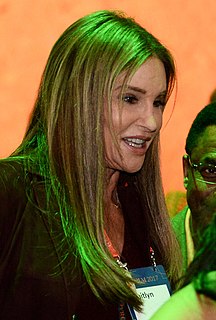A Quote by Philippe Cousteau, Jr.
I have spent many years working in education and media, from hosting documentaries to being a spokesperson for Discovery Education to revolutionizing youth environmental service through my non-profit, EarthEcho International.
Related Quotes
There's no other way to learn about it, except through documentaries. I encourage documentarians to continue telling stories about World War II. I think documentaries are the greatest way to educate an entire generation that doesn't often look back to learn anything about the history that provided a safe haven for so many of us today. Documentaries are the first line of education, and the second line of education is dramatization, such as The Pacific.
My formal education as an extension to my college degree in journalism was the time that I spent working with the student newspaper. I would argue that my greatest education occurred by working for the student newspaper. It wasn't necessarily the classroom work that made my formal education special. It was the idea that I had the opportunity to practice it before I went into the real world.
The best way to deal with AIDS is through education. So we need a really widespread AIDS education program. In fact, what we need in Burma is education of all kinds - political, economic, and medical. AIDS education would be just part of a whole program for education, which is so badly needed in our country.
We are moving in exactly the wrong direction in higher education. Forty years ago, tuition in some of the great American public universities and colleges was virtually free. Today, the cost is unaffordable for many working class families. Higher education must be a right for all - not just wealthy families.
Bernie Sanders talks about socialism in Scandinavia, and he's correct to point to the huge victories the working class has won there through struggle, such as socialized medicine, free college education, and paid family leave. But if you talk to working people in Sweden or Norway today, you will find out that many of those past gains have been eroded and some virtually eliminated, including massive under-funding of healthcare and other public services and a return to for-profit systems that are unaffordable to working class people.



































